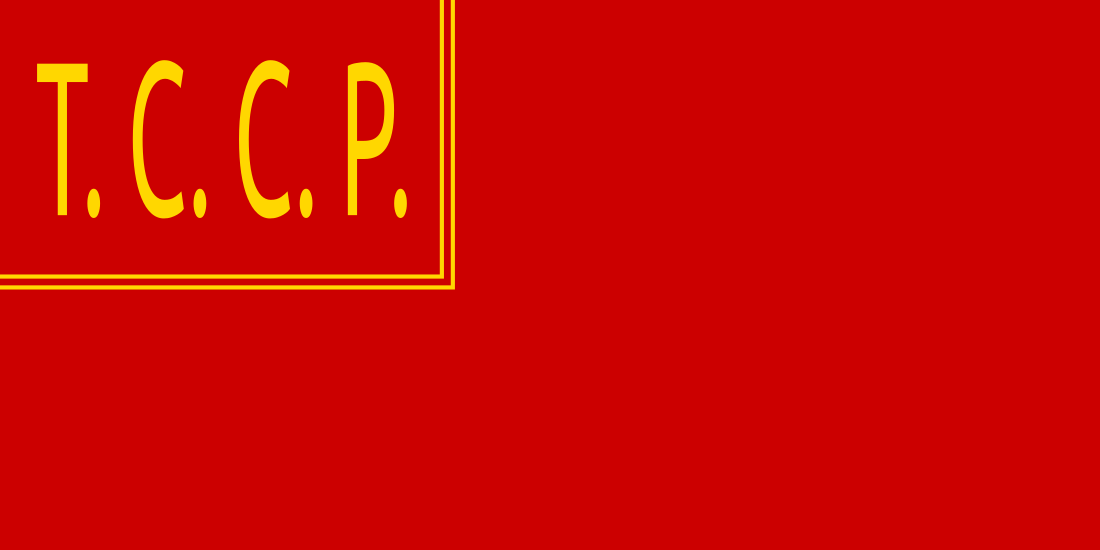Turkestan Autonomous Soviet Socialist Republic
1918–1923 autonomous republic of the Russian SFSR From Wikipedia, the free encyclopedia
The Turkestan Autonomous Soviet Socialist Republic (TASSR; Russian: Туркестанская Автономная Советская Социалистическая Республика, romanized: Turkestanskaya Avtonomnaya Sovetskaya Sotsialisticheskaya Respublika; Uzbek: Turkiston Avtonom Sovet Sotsialistik Respublikasi), originally called the Turkestan Socialist Federative Republic, was an autonomous republic of the Russian Soviet Federative Socialist Republic located in Soviet Central Asia which existed between 1918 and 1924. Uzbeks were the preeminent nation of the Turkestan ASSR. Tashkent was the capital and largest city in the region.
| Turkestan Autonomous Soviet Socialist Republic Туркестанская Автономная Советская Социалистическая Республика | |||||||||||||||||
|---|---|---|---|---|---|---|---|---|---|---|---|---|---|---|---|---|---|
| ASSR of the Russian SFSR | |||||||||||||||||
| 1918–1924 | |||||||||||||||||
 Map of Soviet Central Asia in 1922, indicating the location and extent of the Turkestan ASSR (brown). | |||||||||||||||||
| Capital | Tashkent | ||||||||||||||||
| Historical era | Interwar era | ||||||||||||||||
• Established | 30 April 1918 | ||||||||||||||||
• Disestablished | 27 October 1924 | ||||||||||||||||
| |||||||||||||||||

Name
| Date | Name |
|---|---|
| 30 April 1918 | Turkestan Soviet Federative Republic (constitution adopted 15 October 1918) |
| 24 September 1920 | Turkestan Autonomous Soviet Socialist Republic (constitution approved 24 September 1920) |
| 30 December 1922 | Turkestan A.S.S.R. (within Russian S.F.S.R., part of Soviet Union) |
History
Summarize
Perspective
During the Russian Empire, the Turkestan ASSR's territory was governed as Turkestan Krai, the Emirate of Bukhara, and the Khanate of Khiva. From 1905, Pan-Turkist ideologues like Ismail Gasprinski aimed to suppress differences among the peoples who spoke Turkic languages, uniting them into one government.[1]
This idea was supported by Vladimir Lenin, and after the Russian Revolution of 1917, the Bolsheviks in Tashkent created the Turkestan ASSR. But in February 1918, the Islamic Council (Uzbek: Shoʻro-i Islomiyya) and the Council of Intelligentsia (Uzb. Shoʻro-i Ulamo) met in Kokand city and declared a rival Turkestan Autonomous Republic, battling Bolshevik forces until the 1920s as part of the conservative Basmachi rebellion.[1]
The Turkestan Soviet Federative Republic was officially proclaimed on 30 April 1918.[2][3]
In the late 1917, the TSFR was cut off from the RSFSR by the revolt of the Orenburg Cossacks, but held out, despite being surrounded by hostile states, until the arrival of the Red Army in September 1919 after the Counteroffensive of Eastern Front.[4]
Meanwhile, a power struggle among the Communists ensued between those favoring a Pan-Turkist government like Turar Ryskulov and Tursun Khojaev, and those in favor of dividing Soviet Turkestan into smaller ethnic or regional units, such as Fayzulla Xoʻjayev and Akmal Ikramov. The latter group won, as national delimitation in Central Asia began in 1924.[1] Upon dissolution, the Turkestan ASSR was split into Uzbek SSR (now Uzbekistan), Turkmen SSR (now Turkmenistan) with the Tajik ASSR (now Tajikistan), Kara-Kirghiz Autonomous Oblast (now Kyrgyzstan), and Karakalpak Autonomous Oblast (now Autonomous Republic of Uzbekistan as Karakalpakstan).[1]
Flag
- Flag of Turkestan ASSR (1919–1920)
Chairmen of the Central Executive Committee
- Kobozev, Pyotr Alekseevich (April – May 1918), Solkin, Andrey Fedorovich, contributor (April – 2 June 1918)
- Tobolin, Ivan Osipovich (2 June – 5 October 1918)
- Votintsev, Vsevolod Dmitrievich (October 1918 – 19 January 1919)
- – (19 January – 31 March 1919)
- Kazakov, Aristarkh Andreevich (31 March – July 1919)
- Kobozev, Pyotr Alekseevich (July – September 1919)
- Apin, Ivan Andreevich (September 1919 – January 1920)
- Ryskulov, Turar Ryskulovich (January – 21 July 1920)
- Biserov, Mukhammedzhan (21 July – August 1920)
- Rakhimbaev, Abdullo Rakhimbaevich (4 August 1920 – May 1921), Khodzhanov Sultanbek, acting, prev. (12 May 1920 – ?)
- Tyuryakulov, Nazir Tyuryakulovich (May 1921 – June 1922)
- Rakhimbaev, Abdullo Rakhimbaevich (June – October 1922)
- Khidir-Aliev, Inagadzhan (October 1922 – 1 January 1924), Dadabaev Butabay, vrid. prev. (August – September 1923)
- Aytakov, Nedirbai (9 January – November 1924)
Chairmen of the Council of People's Commissars ("Turksovnarkom").
| Initial date | Final date | Name |
|---|---|---|
| 15 November 1917 | November 1918 | Fyodor Kolesov |
| November 1918 | 19 January 1919 | Vladislav Figelskiy (ru) |
| 19 January 1919 | 31 March 1919 | Post vacant |
| 31 March 1919 | 12 September 1919 | Karp Sorokin (ru) |
| 12 September 1919 | March 1920 | Turksovnarkom defunct |
| March 1920 | May 1920 | Jānis Rudzutaks |
| May 1920 | September 1920 | Isidor Lubimov |
| 19 September 1920 | October 1922 | Kaikhaziz Atabayev |
| October 1922 | 12 January 1924 | Turar Ryskulov |
| 12 January 1924 | 27 October 1924 | Sharustam Islamov (ru) |
References
External links
Wikiwand - on
Seamless Wikipedia browsing. On steroids.




